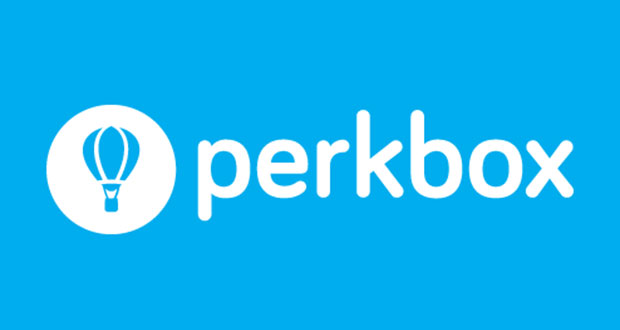Happiness Holds The Key To Committed Care Workers
 In a challenging sector where payment is often in kind, showing appreciation for care staff has never been more important. Reward and recognition ensures qualified carers not only stay committed to working for your organisation, but also stay committed to working in an industry afflicted by an alarming talent deficit.
In a challenging sector where payment is often in kind, showing appreciation for care staff has never been more important. Reward and recognition ensures qualified carers not only stay committed to working for your organisation, but also stay committed to working in an industry afflicted by an alarming talent deficit.
Of course, the myriad problems that the care sector faces are more than just ‘happiness’ related. Constricted by underfunding, care organisations have been forced to think laterally about resolving the industry’s long-standing issues of poor labour retention and talent acquisition in a way that does not hurt the bottom line.
Our line of work has seen us consult with a number of care organisations in the UK who are beginning to understand that employee engagement might just hold the key to addressing a resourcing problem that, if not urgently tackled, could soon snowball into a crisis as our aging population grows.
Carers, of course, aren’t in the job for the money but are driven by a sense of purpose in providing both physical and emotional support to those who need it the most, and there is much satisfaction to be derived from that. Sourcing rare individuals who possess this natural interpersonal flair to deliver outstanding care is, to say the least, tricky. So it’s rather astounding to find that organisations generally have done little to ensure that their assets remain incentivised to continue doing the great work they do in an industry that so desperately needs them.
With unsociable working hours, uncompetitive pay and dealing with the on-going physical and emotional challenges that comes with the daily grind of the job, how might care businesses encourage long-term commitment from staff when so much is expected of them and for so little in return?
Funding is an issue but until a career in the care profession achieves the same credibility it deserves in line with other social and healthcare disciplines, and until the sector diversifies and ‘defeminises’ to attract more talent from eclectic backgrounds, organisations can do much to create a positive and supportive work culture for its staff. Instilling a sense of appreciation, value and worth for carers at the basic level costs nothing. Quite simply, a straightforward ‘Thank You’ can resonate much more than even a monetary reward.
Alex Handley, recruitment manager at Next Stage – a service that provides residential, practical and emotional support to vulnerable people with the aim of helping them lead independent lives – says that improved investment in staff can circumvent the retention and recruitment issue and improve the outcomes for individuals they support. Prior to enlisting a company benefits and employee engagement scheme to address the problem, staff attrition rate at Next Stage stood at an underwhelming 58%; a both costly and hugely disruptive issue for an organisation of 144 staff.
Initially it surveyed employees to find a solution relevant to the lives of their diverse workforce, all of whom are at different stages in life with varying responsibilities and personal interests. They discovered that 40% of staff were parents who could benefit from childcare vouchers; half expressed an interest in a cycle-to-work scheme, and nearly half said that access to a 24/7 telephone counselling service could benefit them in the long run.
To implement both a benefits and reward & recognition infrastructure, Next Stage enlisted employee benefits provider Perkbox as a cost-effective means of satisfying these demands and providing perks that staff could redeem throughout the year via a simple app. This was especially helpful for its non desk-based workers. Over two-hundred practical, recreational and salary-sacrifice benefits – from cheap cinema tickets, spa days, savings on groceries and travel to free mobile phone insurance, subsided gym membership, cycle-to-work schemes and childcare vouchers form part of the package.
Meanwhile, its integrated rewards & recognition facility is designed to enhance financial, emotional and physical wellbeing (for example, staff may access exclusive content to online videos showing them how they may exercise or meditate at their desks or on the go). Peers and managers may reward employees for a job well done through the application’s badge awards system, with accolades displayed via a company-wide leader board. This allows staff to achieve reward & recognition in real time, with the added bonus of having covetable rewards (like champagne, shopping vouchers and even adventure experiences) attachable to the badges.
Since implementation, a significant reduction in attrition rate in six months has been achieved. Now just 14% of new starters leave (down from 58% the previous year) – a phenomenal achievement in a sector that sees many qualified workers churn within a year. Its newly launched employee referral scheme resulted in 38% new hires since January 2016, while its partnership with Perkbox has seen cultural shifts in the work environment. The business, which runs breakfast and lunch clubs, has given the company more options and variations to run other team building activities cost effectively. Its 144 staff have also since redeemed 665 benefits via the platform, equating to a saving of nearly £40K.
In short, care organisations must take collective responsibility for elevating their work culture and rewards programme to new levels. Leading by example and setting a new benchmark for employee happiness will catalyse positive change.
Carers make an invaluable contribution to the quality of life of the elderly people under their care, and demand for this service will only increase. The disturbing repercussions of this talent deficit looms. It’s about time all organisations that operate in care start paying closer attention to their own strategy for attaining this; not only for the good of their business but for the sector as a whole.
Saurav Chopra is CEO of employee benefits provider Perkbox (www.perkbox.co.uk).

